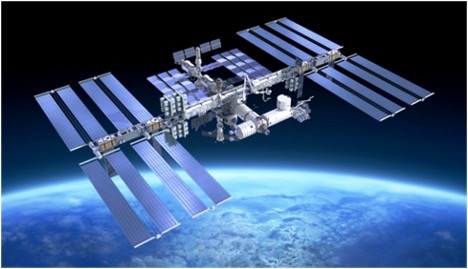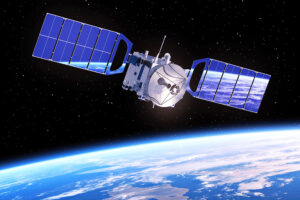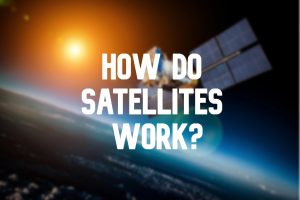Risks, costs and benefits of space exploration: Do Pros Outweigh the Cons?
20th Sep 2022
As the space industry keeps racing forward, more and more people ask a reasonable question — do the benefits of space exploration outweigh the cost? While it is true that the scientific benefits are huge, so are the budgets necessary for exploring space. Below, we tried to weigh all aspects of this question, trying to figure out how can space exploration benefit us and if it’s even worth the money.
Is space exploration a waste of money?
At the beginning of the Apollo program, NASA’s budget for Moon exploration missions far outweighed the program’s scientific exploration benefits — which is the primary reason Apollo was eventually closed. But is it still the case today, when private companies are the leading drive behind new space exploration missions, and governments benefit from no longer spending billions of dollars on these programmes? While plenty of supporters point out the benefits of space exploration technology, the opposition, including US senators, criticizes space billionaires’ ‘joy rides,’ stating that our planet is facing far more pressing challenges, i.e., climate change, pollution, poverty, etc.
All of those challenges must be addressed, and doing so would cost money. While it is hard to argue against this point, there are benefits of spending money on space exploration that directly address the above challenges. Plenty of Earth Observation satellites are already providing data on climate change, helping react to natural disasters, forecasting crop yields, and even assisting in combating poaching, illegal human trafficking, and sea piracy — all undeniable space exploration benefits. Without satellites and space exploration technology, we would never be able to obtain such important data in next-to-real-time mode. But there are more benefits if we consider the long-term picture.
Why is space exploration important?
If we look back at our history as species, one thing becomes apparent — exploring has always been part of our nature, if not the cornerstone of civilization as we know it today. It is true that the recent COVID crisis put the world’s economy on hold, and today’s geopolitical uncertainties may call for allocating space exploration budgets elsewhere. On the other hand, we know that one of the surest ways to get out of an economic crisis is to invest in technology — as, for instance, was done quite successfully during the US Great Depression.
Space technology today is, without any question, the most advanced, state-of-the-art example of what humanity can achieve given time and resources. Besides satisfying our innate need for expansion, modern space tech provides us with valuable data necessary for our survival as species. And it’s not just about having a ‘backup’ base on Mars, as Elon Musk claims; some of the benefits of space exploration for mankind, like monitoring space for asteroids and other hazardous near-Earth objects, are way more prosaic. But let’s take a better look at other aspects explaining why space exploration is important.
Technological benefits of space exploration
One of the most obvious technological benefits to mankind is improved connectivity, which would not have been possible without communications satellites. As more and more companies deploy their constellations of satellites in LEO, even the most remote corners of the world benefit from access to broadband Internet and cell service.
On a larger scale, potential benefits include technological advances in developing solar panels, cordless tools, navigation tech, and — potentially — the discovery of new minerals and resources. Eventually, technological benefits of the space industry make their way into every corner of our daily lives — from creating new medical equipment to making financial transactions with a shake of a smartphone.
Vacuum-sealed food and fireproof materials in firefighter uniforms are just two of the most prominent examples of how the space industry made its way into our households. All of those obvious benefits we already take for granted trace back to the early space exploration days.
NASA benefits of space exploration
There are plenty of benefits of space exploration NASA highlights, ranging from advances in technology, briefly covered above, to the cultural benefits of space exploration. NASA particularly stresses that technological advances create more employment opportunities, improve the economy, and help find new means to address global challenges. According to the agency, the International Space Station plays a major part in all of those processes, particularly in commercializing the Low-Earth Orbit and offering new collaboration benefits for the private space sector. Eventually, this paves way for deeper space exploration and research benefits because governments no longer need to invest enormous amounts of money now that they have a backup from private space billionaires.
International collaboration on the ISS has already resulted in plenty of exploration benefits as it provided scientific data on our planet’s nature, helped scientists come up with ways to purify water, improve air quality indoors, grow high-quality protein crystals and, most importantly, made an enormous contribution to the advances in medical science.
Social benefits
Benefits to society include, first and foremost, improved life quality. This benefit is obvious from easy access to satellite navigation, advanced connectivity, various technologic benefits (i.e., smart house tech that would not be possible without satellites) and, of course, advanced healthcare benefits.
As far as the benefits of space exploration for kids go, it’s hard to argue that space exploration is thrilling and inspiring. As the industry moves forward, more and more youngsters choose majors in STEM sciences, which could potentially translate into space careers. But, of course, this inspiration is not only for children as space exploration, particularly photos from Voyager 1 probe, has given us an unprecedented insight into our Universe’s secrets, moving science forward. And, considering the pace at which this industry develops now, it’s safe to assume we’ve merely scratched the surface when it comes to space exploration benefits. And more inspiring discoveries to improve our life quality are likely to happen soon.
Benefits of manned space exploration
Sending crewed exploration missions to Moon and other planets is a dangerous endeavour, but as technology evolves, the associated risks decrease. Besides acting as inspiration and potentially moving economies forward by creating new job opportunities, benefits also include collecting data that would not be accessible with drones and probes. First Apollo exploration missions to land on the Moon brought back samples of lunar soils that helped get us a better understanding of our only natural satellite.
The traditionally manned ISS also provided a lot of data on microgravity effects on the human body and even plant growth, which is now actively cultivated at the station. Besides, certain manoeuvres require crewed presence — for example, it would be challenging to adjust ISS orbit (to prevent its de-orbiting or collision with space debris) without a crew onboard.
Benefits of unmanned space exploration
On the other hand, unmanned exploration missions are less pricey and can help us cover larger distances, which is their primary benefit. For example, Voyager-1 launched in 1977, still remains the most remote man-made object ever launched from Earth, and despite being in space for almost half a decade, it is still transmitting signals, giving scientists more valuable info to analyse. Considering the risks, robotic exploration missions seem to be a safer and more affordable choice. Coming back to NASA’s Apollo program, for example, it took probes less time to land on the launder surface and any accidents would only mean the loss of equipment, not the loss of human lives, which is an obvious benefit.
Still, the most tangible unmanned exploration benefit is mission and spacecraft cost. There are plenty of areas to downsize when designing an unmanned spacecraft — from temperature and pressure controls, irrelevant to the probe’s operation, to lesser payload capacity that does not call for carrying water and food supplies.
Health benefits of space exploration
The top medical benefits of space exploration are improving our understanding of how the human body works by conducting experiments that would not be possible without space exploration advances. For example, insight from ISS scientists has already helped come up with treatments for Type2 diabetes, osteoporosis, and a range of cardiovascular disorders.
Modern surgeries now benefit from robotized arms (that can even be controlled remotely), which also result from our space exploration advances. In fact, most medical benefits of today, even solutions for treating breast cancer, have resulted from ISS technology and exploration.
Plus, when the COVID pandemic hit the Earth, satellite imagery and data analysis made it possible to locate the most hazardous areas, coming up with timely isolation and quarantine solutions, thus, keeping the disease spread at bay.
Benefits for the Environment
While it is true that rocket fuel is potentially dangerous to our atmosphere, a lot of tech advances made it possible to come up with friendlier, less harmful fuel types. Some companies, like Skyrora for example, are even obtaining their rocket fuel from plastic waste, while others, like Orbex, claim their fuel vapours barely emit any carbon. Still, the primary environmental benefits are insights we get from EOS satellites. Thanks to these data, scientists have managed to preserve several endangered species like elephants, tracking them from space, get relevant data on ocean pollution, deforestation and desertification areas, access the impacts of industrialization on our home planet, and much more. Satellites stand guard of our planet 24/7, transmitting valuable data on climate change and eventually, scientists should have enough information to combat this global challenge.
Economic benefits of space exploration
Space sector growth creates new employment opportunities, which is an undeniable benefit for developing economies worldwide. For example, UK’s latest initiative to build launch sites in its remote areas has already created hundreds of new jobs in rural Scotland — jobs young people would be forced to pursue in larger cities.
NASA also reports that the industry supports 300+ high-paid jobs nationwide, generating $7 billion in federal taxes in 2019. In contrast to that, NASA’s expenses to benefit from space exploration are significantly lower — for example, its investment in building an Artemis lunar base does not even reach $2 billion. So, as an economy driver, space industry remains one of the most promising areas for different countries worldwide. And while boosting economies is the last example on our benefits of space exploration list, it is definitely not the least.
Having considered all benefits and risks of space exploration, we can safely state the benefits do outweigh the risks. While it is true that exploring interstellar space can be a hazardous undertaking, modern tech addresses the riskiest aspects of the job, and some of those advances have already found a way into our daily lives back on Earth. Most importantly, exploring space is not that pricey — from the taxpayer’s perspective. For example, today’s NASA budget is less than 0.5% of the taxpayer’s funds, and the situation is quite similar in other countries where more and more private players join in the new space exploration era, investing private rather than government funds. So, there is no reason not to benefit from space exploration today.






Thank you for your comment! It will be visible on the site after moderation.